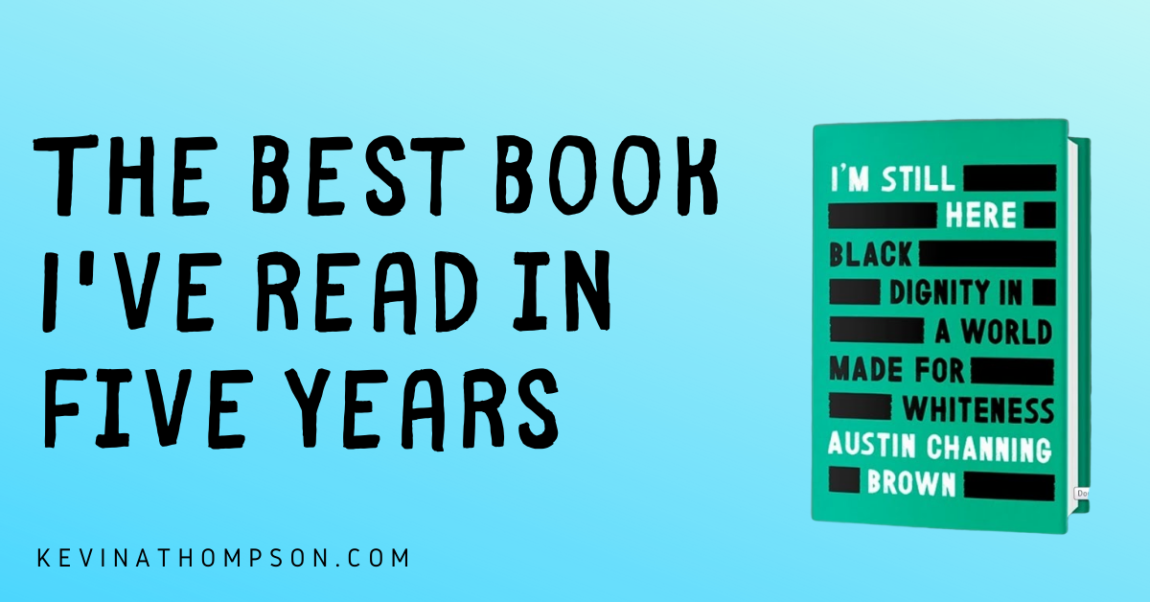When I made the first list of the 2020 Short Book Reading Challenge, I noticed one problem–the whole list was a bunch of white men. They were good books, but they were all men and all white. While the list had theological diversity, geographical diversity, and even time diversity (half the list was dead), it did not have any gender or race diversity.
I changed the list. I added one of my favorite books written by a woman. But the list still lacked color. While I could have easily added a book from a person of color, the absence brought to light a bigger problem–I don’t regularly read books by people of color. My library is white and because it’s white, I’m missing a diversity of experiences and ideas.
Wanting to add another book to my list, I texted some friends. Knowing most of my readers are white, what would be one book they would want white evangelical Christians to read. I received several suggestions, but one specifically stood out.
Love Listens
The recognition of the bias of my library came at the same time in which I was planning our church’s winter preaching schedule. Like most Februarys, we would do a series on love. As I planned the series, I was drawn to Dietrich Bonhoeffer’s book Life Together which proclaimed our first service of love to others is to listen to them.
If my library is all white that means I’m not reading a variety of people. And if I’m not reading books from large segments of the population, I’m not listening to them. If I’m not listening, I’m not loving. (See: On Habit Killing your Leadership)
I’m Still Here
The book which was most recommended to me was I’m Still Here by Austin Channing Brown. The book is about her story growing up as an African-American woman in a predominantly white culture. Of particular interest to me was that she grew up in a white evangelical church. So we grew up around the same time with many of the same surroundings, yet many aspects of her story differ from mine. Why? Because our skin colors are different.
She tells the story of her name. Her parents named her Austin because they believed it sounded like a white man. Knowing if a name on a resume sounded like a black woman, she would be less likely to get a call for a job interview, so her parents gave her a name they thought employers would accept better. My parents never had to make such a consideration.
She talks about growing up in school and never having a teacher who understood her experience. They wouldn’t mention the TV shows her family would watch or talk about the issues her family discussed. It wasn’t until late in her educational experience when a teacher talked about putting relaxer in her hair and Austin looked up from her desk realizing her teacher understood her life. Every teacher I had related to me.
She tells the story of being in a store as a small child with her dad. She wanted a toy and picked it up. He told her to put it down. She obeyed and then shoved her hands into her pockets so she wouldn’t be tempted to grab it again. Her father corrected her. He instructed her that she couldn’t touch something on a store shelf and then put her hands in her pockets because people might think she was trying to steal. My parents never had to have that conversation with me.
The book is full of stories from her experience that are radically different from mine. Until I listen to someone with an experience different than mine, I would never have a chance of understanding. Without understanding, it is guaranteed that I would downplay her experience and write the wrong story about her. (See: The Definitive Indicator of a Healthy Relationship)
A Challenge
If we are called to love all people, we must be willing to listen to all people. Until you are listening, you are not loving. Thankfully we live in an amazing time where so many resources are available for us to listen to people with different perspectives, backgrounds, and understandings than us.
In our day, nearly all ignorance is willful ignorance.
So here is my challenge for you. Pick three people who are different from you and read/listen to them. Read a different race, a different religious perspective, and a different political leaning.
If you are a white male, read Austin Channing Brown’s book. Don’t debate it. Don’t skim it. Try to let your guard down so you aren’t defensive. Just listen to her story and believe her.
If you are pretty hardline about immigration issues, read Dr. Vinh Chung’s book, Where the Wind Leads.
If you are a Republican read a book by (not just about) a prominent Democrat. If you are a Democrat, read a book by (not just about) a prominent Republican. Or watch two documentaries: 41 on 41 and RBG.
Love listens. Start loving by starting to listen.




4 Responses to The Best Book I’ve Read in Five Years